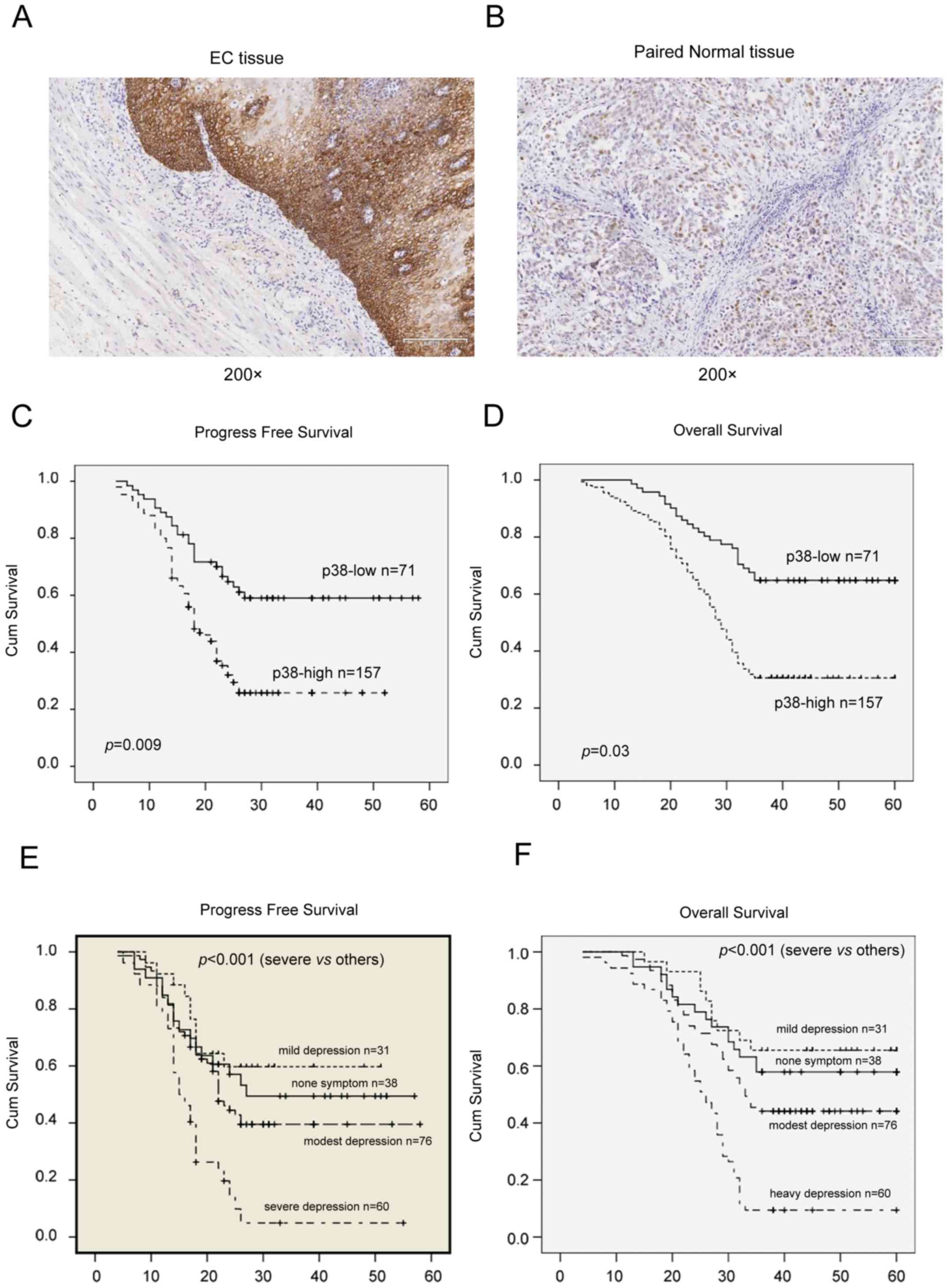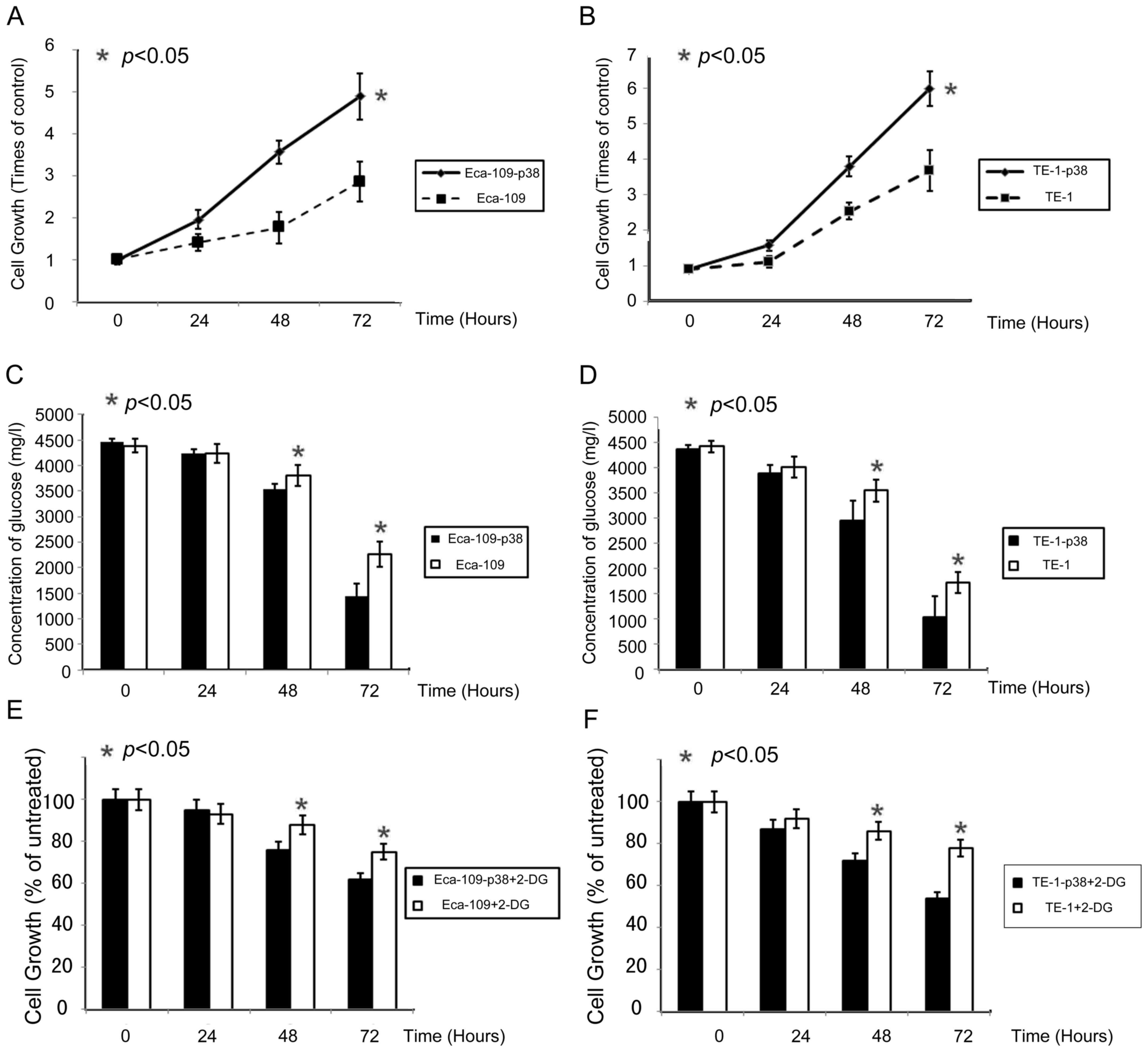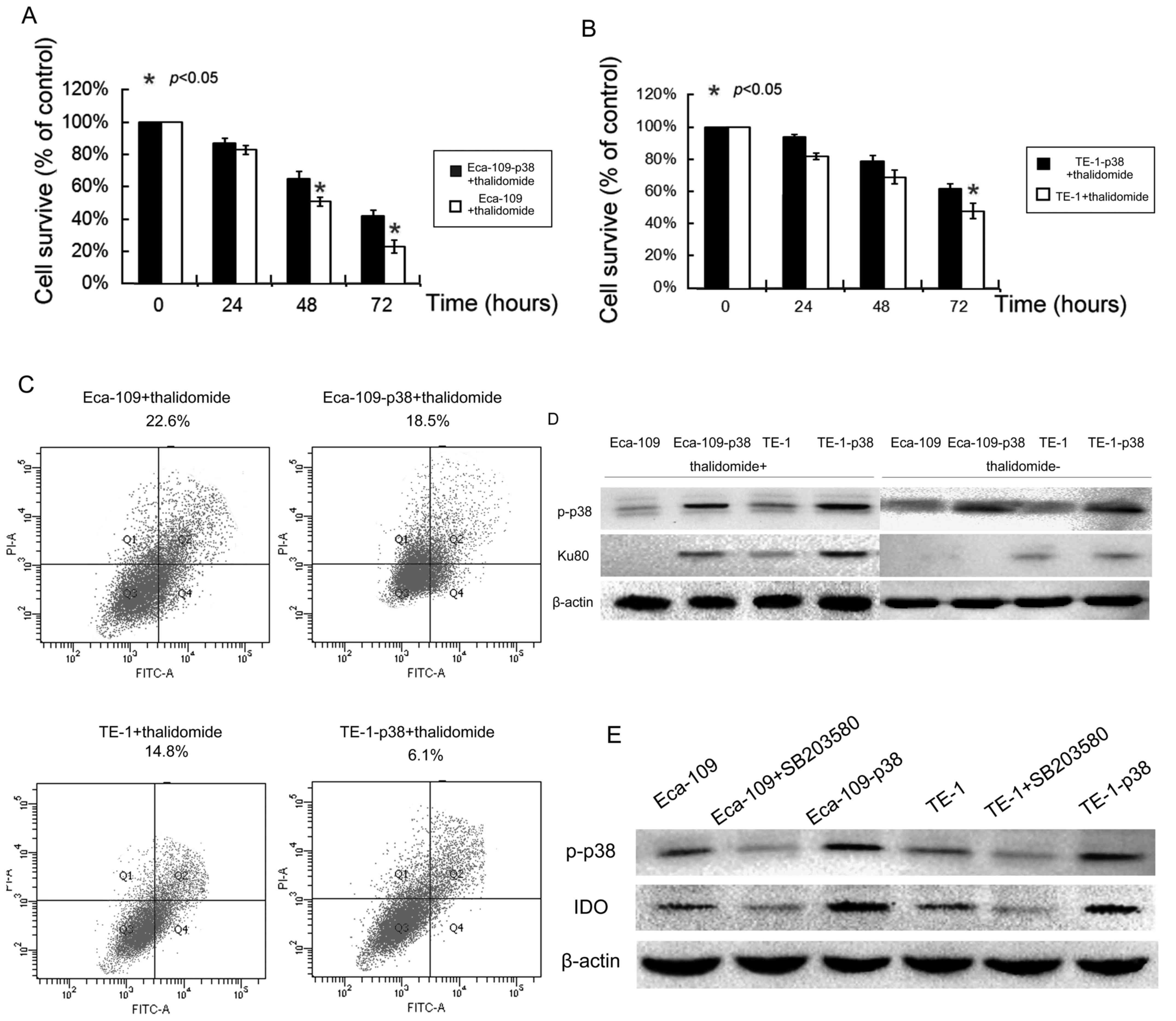|
1
|
Rubenstein JH and Shaheen NJ:
Epidemiology, diagnosis, and management of esophageal
adenocarcinoma. Gastroenterology. 149:302–317. 2015. View Article : Google Scholar : PubMed/NCBI
|
|
2
|
Mortensen MB: Avoiding complications in
esophageal cancer surgery. Minerva Chir. 68:341–352.
2013.PubMed/NCBI
|
|
3
|
Brescia AA, Broderick SR, Crabtree TD,
Puri V, Musick JF, Bell JM, Kreisel D, Krupnick AS, Patterson GA
and Meyers BF: Adjuvant therapy for positive nodes after induction
therapy and resection of esophageal cancer. Ann Thorac Surg.
101:200–210. 2016. View Article : Google Scholar : PubMed/NCBI
|
|
4
|
Pozza A, Erroi FR, Scarpa M, Polese L,
Rampazzo L and Norberto L: Palliative therapy for esophageal
cancer: Laser therapy alone is associated with a better functional
outcome. Updates Surg. 67:61–67. 2015. View Article : Google Scholar : PubMed/NCBI
|
|
5
|
Wilson KG, Chochinov HM, Skirko MG, Allard
P, Chary S, Gagnon PR, Macmillan K, De Luca M, O'Shea F, Kuhl D, et
al: Depression and anxiety disorders in palliative cancer care. J
Pain Symptom Manage. 33:118–129. 2007. View Article : Google Scholar : PubMed/NCBI
|
|
6
|
Grabsch B, Clarke DM, Love A, McKenzie DP,
Snyder RD, Bloch S, Smith G and Kissane DW: Psychological morbidity
and quality of life in women with advanced breast cancer: A
cross-sectional survey. Palliat Support Care. 4:47–56. 2006.
View Article : Google Scholar : PubMed/NCBI
|
|
7
|
Pelletier G, Verhoef MJ, Khatri N and
Hagen N: Quality of life in brain tumor patients: The relative
contributions of depression, fatigue, emotional distress, and
existential issues. J Neurooncol. 57:41–49. 2002. View Article : Google Scholar : PubMed/NCBI
|
|
8
|
Breitbart W: Identifying patients at risk
for, and treatment of major psychiatric complications of cancer.
Support Care Cancer. 3:45–60. 1995. View Article : Google Scholar : PubMed/NCBI
|
|
9
|
Irving G and Lloyd-Williams M: Depression
in advanced cancer. Eur J Oncol Nurs. 14:395–399. 2010. View Article : Google Scholar : PubMed/NCBI
|
|
10
|
Kadan-Lottick NS, Vanderwerker LC, Block
SD, Zhang B and Prigerson HG: Psychiatric disorders and mental
health service use in patients with advanced cancer: A report from
the coping with cancer study. Cancer. 104:2872–2881. 2005.
View Article : Google Scholar : PubMed/NCBI
|
|
11
|
Kumar B, Koul S, Petersen J, Khandrika L,
Hwa JS, Meacham RB, Wilson S and Koul HK: p38 mitogen-activated
protein kinase-driven MAPKAPK2 regulates invasion of bladder cancer
by modulation of MMP-2 and MMP-9 activity. Cancer Res. 70:832–841.
2010. View Article : Google Scholar : PubMed/NCBI
|
|
12
|
Xiong S, Grijalva R, Zhang L, Nguyen NT,
Pisters PW, Pollock RE and Yu D: Up-regulation of vascular
endothelial growth factor in breast cancer cells by the
heregulin-beta1-activated p38 signaling pathway enhances
endothelial cell migration. Cancer Res. 61:1727–1732.
2001.PubMed/NCBI
|
|
13
|
Kumar V, Behera R, Lohite K, Karnik S and
Kundu GC: p38 kinase is crucial for osteopontin-induced furin
expression that supports cervical cancer progression. Cancer Res.
70:10381–10391. 2010. View Article : Google Scholar : PubMed/NCBI
|
|
14
|
Guo X, Ma N, Wang J, Song J, Bu X, Cheng
Y, Sun K, Xiong H, Jiang G, Zhang B, et al: Increased p38-MAPK is
responsible for chemotherapy resistance in human gastric cancer
cells. BMC Cancer. 8:3752008. View Article : Google Scholar : PubMed/NCBI
|
|
15
|
Coltella N, Rasola A, Nano E, Bardella C,
Fassetta M, Filigheddu N, Graziani A, Comoglio PM and Di Renzo MF:
p38 MAPK turns hepatocyte growth factor to a death signal that
commits ovarian cancer cells to chemotherapy-induced apoptosis. Int
J Cancer. 118:2981–2990. 2006. View Article : Google Scholar : PubMed/NCBI
|
|
16
|
Looby E, Abdel-Latif MM, Athié-Morales V,
Duggan S, Long A and Kelleher D: Deoxycholate induces COX-2
expression via Erk1/2-, p38-MAPK and AP-1-dependent mechanisms in
esophageal cancer cells. BMC Cancer. 9:1902009. View Article : Google Scholar : PubMed/NCBI
|
|
17
|
Yousif NG, Al-Amran FG, Hadi N, Lee J and
Adrienne J: Expression of IL-32 modulates NF-κB and p38 MAP kinase
pathways in human esophageal cancer. Cytokine. 61:223–227. 2013.
View Article : Google Scholar : PubMed/NCBI
|
|
18
|
Zhong D, Gu C, Shi L, Xun T, Li X, Liu S
and Yu L: Obatoclax induces G1/G0-phase arrest via
p38/p21(waf1/Cip1) signaling pathway in human esophageal cancer
cells. J Cell Biochem. 115:1624–1635. 2014. View Article : Google Scholar : PubMed/NCBI
|
|
19
|
Zoga M, Oulis P, Chatzipanagiotou S,
Masdrakis VG, Pliatsika P, Boufidou F, Foteli S, Soldatos CR,
Nikolaou C and Papageorgiou C: Indoleamine 2,3-dioxygenase and
immune changes under antidepressive treatment in major depression
in females. In Vivo. 28:633–638. 2014.PubMed/NCBI
|
|
20
|
Zhou W, Dantzer R, Budac DP, Walker AK,
Mao-Ying QL, Lee AW, Heijnen CJ and Kavelaars A: Peripheral
indoleamine 2,3-dioxygenase 1 is required for comorbid
depression-like behavior but does not contribute to neuropathic
pain in mice. Brain Behav Immun. 46:147–153. 2015. View Article : Google Scholar : PubMed/NCBI
|
|
21
|
Liu WL, Lin YH, Xiao H, Xing S, Chen H,
Chi PD and Zhang G: Epstein-Barr virus infection induces
indoleamine 2,3-dioxygenase expression in human monocyte-derived
macrophages through p38/mitogen-activated protein kinase and NF-κB
pathways: Impairment in T cell functions. J Virol. 88:6660–6671.
2014. View Article : Google Scholar : PubMed/NCBI
|
|
22
|
Fujigaki H, Saito K, Fujigaki S, Takemura
M, Sudo K, Ishiguro H and Seishima M: The signal transducer and
activator of transcription 1alpha and interferon regulatory factor
1 are not essential for the induction of indoleamine
2,3-dioxygenase by lipopolysaccharide: Involvement of p38
mitogen-activated protein kinase and nuclear factor-kappaB
pathways, and synergistic effect of several proinflammatory
cytokines. J Biochem. 139:655–662. 2006. View Article : Google Scholar : PubMed/NCBI
|
|
23
|
Fu X, Lawson MA, Kelley KW and Dantzer R:
HIV-1 Tat activates indoleamine 2,3 dioxygenase in murine
organotypic hippocampal slice cultures in a p38 mitogen-activated
protein kinase-dependent manner. J Neuroinflammation. 8:882011.
View Article : Google Scholar : PubMed/NCBI
|
|
24
|
Nomura M, Shitara K, Kodaira T, Hatooka S,
Mizota A, Kondoh C, Yokota T, Takahari D, Ura T and Muro K:
Prognostic impact of the 6th and 7th American Joint Committee on
Cancer TNM staging systems on esophageal cancer patients treated
with chemoradiotherapy. Int J Radiat Oncol Biol Phys. 82:946–952.
2012. View Article : Google Scholar : PubMed/NCBI
|
|
25
|
Cheng Y, Li K, Diao D, Zhu K, Shi L, Zhang
H, Yuan D, Guo Q, Wu X, Liu D and Dang C: Expression of KIAA0101
protein is associated with poor survival of esophageal cancer
patients and resistance to cisplatin treatment in vitro. Lab
Invest. 93:1276–1287. 2013. View Article : Google Scholar : PubMed/NCBI
|
|
26
|
Burrin JM and Price CP: Performance of
three enzymic methods for filter paper glucose determination. Ann
Clin Biochem. 21:411–416. 1984. View Article : Google Scholar : PubMed/NCBI
|
|
27
|
Cheng Y, Diao D, Zhang H, Guo Q, Wu X,
Song Y and Dang C: High glucose-induced resistance to
5-fluorouracil in pancreatic cancer cells alleviated by
2-deoxy-D-glucose. Biomed Rep. 2:188–192. 2014. View Article : Google Scholar : PubMed/NCBI
|
|
28
|
Wichers MC and Maes M: The role of
indoleamine 2,3-dioxygenase (IDO) in the pathophysiology of
interferon-alpha-induced depression. J Psychiatry Neurosci.
29:11–17. 2004.PubMed/NCBI
|
|
29
|
Kohl C and Sperner-Unterweger B: IDO and
clinical conditions associated with depressive symptoms. Curr Drug
Metab. 8:283–287. 2007. View Article : Google Scholar : PubMed/NCBI
|
|
30
|
Zheng ST, Zhang CS, Qin X, Gen YH, Liu T,
Sheyhidin I and Lu XM: The status of phosphorylated p38 in
esophageal squamous cell carcinoma. Mol Biol Rep. 39:5315–5321.
2012. View Article : Google Scholar : PubMed/NCBI
|
|
31
|
Pal A, Huang W, Li X, Toy KA,
Nikolovska-Coleska Z and Kleer CG: CCN6 modulates BMP signaling via
the Smad-independent TAK1/p38 pathway, acting to suppress
metastasis of breast cancer. Cancer Res. 72:4818–4828. 2012.
View Article : Google Scholar : PubMed/NCBI
|
|
32
|
Yu JP, Sun SP, Sun ZQ, Ni XC, Wang J, Li
Y, Hu LJ and Li DQ: Clinical trial of thalidomide combined with
radiotherapy in patients with esophageal cancer. World J
Gastroenterol. 20:5098–5103. 2014. View Article : Google Scholar : PubMed/NCBI
|
|
33
|
Sun YR, Wang XY, Li SS, Dong HY and Zhang
XJ: β-asarone from Acorus gramineus alleviates depression by
modulating MKP-1. Genet Mol Res. 14:4495–4504. 2015. View Article : Google Scholar : PubMed/NCBI
|
|
34
|
Cuijpers P and Cristea IA: What if a
placebo effect explained all the activity of depression treatments?
World Psychiatry. 14:310–311. 2015. View Article : Google Scholar : PubMed/NCBI
|

















